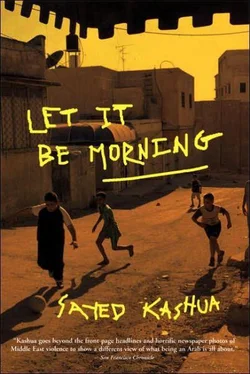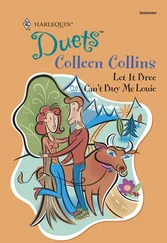“Besides, you’re invited to the party. I’m getting engaged.”
“Congratulations,” the owner says. He’s feeling a little less uptight now.
We make the rounds of the stores. Most are closed, and there’s nothing useful in most of the ones that are still open. Every now and then we find a soft drink bottle on the lower shelf of a refrigerator. We manage to get hold of about twenty bottles. And every time my brother comes back with a bottle, his smile grows larger, as if we’ve managed to pull one over on the whole world. I begin enjoying the game too, for some reason. My brother’s smiles flatter me. He chuckles at the thought that things will go back to normal in half an hour and we’ll get stuck with enough drinks to last us a whole year. “In the end, I really will have to get engaged to get rid of all this Coke and juice,” he says.
We walk the village streets, which are filling up with people who have nothing to do. Bitter-looking people stare at the piles of garbage, look at each other and don’t know what to do. We can see the sewage streaming through the streets, the flow getting wider and wider. There are blockages all over the village and I wonder how it’s possible for people to know that the sewage is stopped up and the village has no water — and to continue behaving normally. Sometimes I can’t help feeling unspeakably sorry for them when I see how much they believe in their citizenship.
“Where now?” my brother asks.
“Let’s load up two gallons of cooking gas.”
“What, do you think we’re going to run out of that too?”
“I don’t like taking chances.”
My father walks around outside of the house with a spade in his hand, drawing circles in the blazing sand. It’s amazing how he can still find the exact location of the sewage pipes. I could never have done that, even though I was old enough when they connected us to the system and was standing next to my father when they dug the ditches and laid the pipes and covered them up. The water level in the toilets and in the sinks in my parents’ house is rising. Nobody is checking the situation yet but one can deduce that the same thing will happen soon enough in my brother’s house too, and in mine. My younger brother and I join my father, who digs down slowly until he reaches concrete. The filthy water has risen above the first covering. My father asks us to find a crowbar with which to lift the cover. He makes a circle where the next cover should be and gently pushes away the sand with his spade. “Same mess here,” he says. “I bet all of them are blocked up. The problem is in the central system, not here.” My brother gets a crowbar and tries to find an opening along the edge of the lid so he can pry it open. He doesn’t do too well, and tries a different spot. Eventually he succeeds in forcing it in, but the lid is too heavy, too stuck, and he can’t pry it loose. I take over and try to help him, using as much force as I can. The lid shifts a little but slips back into place. Father shouts at us from a distance and urges us to keep trying. “Come on, what is it with you, two men fighting with one drain cover?”
The two of us try to do it together. My brother laughs out loud. We take turns kicking it, shoving the crowbar along its edge. Finally it gives. The ditch is completely flooded, and water is spilling out. The smell isn’t that bad, and it doesn’t get any worse.
My father says there is no point draining a single ditch. “Everything is stopped up. The whole village must be stopped up by now. The problem isn’t here. There isn’t much we can do.” My father is very handy in situations like this. The truth is we’ve never had to call in a plumber or a painter or an electrician. I have no idea where he acquired these skills. You could easily assume he’d once worked in the sanitation department or with an electrician. For as long as I can remember, whenever that kind of problem came up, Father would roll up his sleeves and set about solving it and we, the three brothers, would follow him, as would-be apprentices trying to live up to their master’s high standards.
He stands there for a moment, leaning on his spade, looking this way and that, his eyes shining at the thought of the new challenge that has come his way. He looks up at the houses he’s built for us and says, “Lucky I used a provisional connection to hook you up to the sewage system. We saved money and I also knew it would save you unnecessary work. He smiles as he recalls how he managed to connect the whole system in a single night, laying out the pipes and connecting them to the parents’ house. He said at the time that there was no point paying the municipality more money and that, besides, that’s what everyone does. He did pay once, after all, and that should be enough.
So there is no blockage. The sewage is backing up, in fact, because the entire village is blocked. My father looks up from his spade, his face pensive as if trying to solve a complicated riddle, and he says, “There’s nothing we can do about it. We’ve got to block off the last drainage ditch, the one from the house to the central system. Let’s start out by doing that.” He shouts to my mother to come outside. She hurries out, wearing the kerchief usually reserved for days of mourning. Father instructs her to bring some plastic bags and the sack of gypsum from the storeroom. My mother hurries into the house and comes back with the supplies Father has asked for. Meanwhile, he brushes the sand off the last covering, the one closest to the road. One movement of Father’s hand is enough for my brother and me to understand he wants us to lift the lid. We both get into position. This time I am the one who looks for a place to insert the crowbar. Father watches disparagingly. I find the spot, shove it in with all my strength and give it a powerful kick, sending the crowbar up in the air. Father covers his head. I scurry backward.
“Are you a complete idiot?” he shouts. “Are you trying to kill us?” My younger brother laughs, picks up the crowbar and tries his luck. It works. He presses down, using his full body weight to dislodge the lid. It moves and I hurry to catch it from below before it slips back into place. “Yuck!” I say as I lift it up, my hands suddenly coated with green slime. I shake my head and rush home to wash my hands. But then I remember the water shortage and I’d better put it off till we’re through. “It’s just as well that you got yourself dirty,” my father says. “It’s about time.” The last ditch lets loose a stronger outpouring of sewage, with repulsive turds floating on top. I can’t hold back. I bend over and puke. My bones hurt, my face is flushed and I throw up again and again. I hold my hands as far away from my body as I can. My eyes are burning and filled with tears and my nose is running. There isn’t much I can do except wipe my face with the shoulder of my shirt.
“As long as you’ve gotten dirty,” my father says, and hands me a plastic bag filled with a white mixture, “shove your hand into the ditch and push this bag into the pipe that goes toward the street so we don’t wind up with the sewage of the entire village. Got that? Not the pipe going toward the house, the one going in the direction of the village.”
I retch one more time, making gagging sounds. It hurts as much as before but nothing comes out anymore. I can tell by my brother’s expression that he’s feeling very sorry for me, and he signals to let me know that he’ll do it instead. I shake my head and approach the ditch, where I see the sewage flowing in all directions. I bend over without thinking twice, my knees digging into the ground, which by now has turned into a smelly bog. With one hand I lean on the ground, and the other hand I push in, deep into the ditch. My entire arm is inside by now, as I grope for the pipe that Father was talking about. I find it easily, and keep pushing. My whole left arm is inside the pipe. My cheeks are up against the muck. I don’t think about it at all, don’t think about anything, just keep looking at my father, who stands there smiling and tries to speed things up, looking every bit the winner.
Читать дальше












